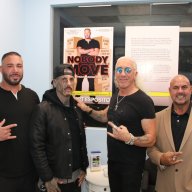Two major New York State mental health advocacy organizations—the New York State Council for Community Behavioral Healthcare (the Council) and the Community Health Care Association of New York State (CHCANY)—have made a formal recommendation that New York State permanently removes barriers to the provision of telehealth visits for all New Yorkers after the COVID-19 pandemic disaster declarations have expired.
In their recent press release on the matter, they stated: “Increased use of telehealth has allowed primary care, mental health and substance use disorder care recipients who cannot physically visit a healthcare professional in-person to use their phone or computer to access the services they need.”
At North Shore Child & Family Guidance Center, we support these efforts to ensure a comprehensive, coordinated and integrated continuum of care. I asked members of our mental health staff to share their experiences with telehealth during the pandemic so we could add our voice to the advocacy effort.
One of our staff members, Vanessa McMullan, who is a clinical social worker with special expertise in the area of postpartum depression, shared her thoughts with me. Beyond using her testimony to advocate for continued and permanent use of telehealth, I thought I would take this opportunity to inform you, my readers, about our experience in the transition to remote counseling.
As Vanessa testified: “I feel compelled to show my support in recommending that New York State permanently remove barriers in providing telehealth services for all New Yorkers following the COVID-19 pandemic.
“As a Licensed Social Worker who has been practicing for 15 years, I have seen families face many crises. With the current pandemic, it has been incredibly valuable to remain connected with clients, as well as engage new people in need of help. Without access to telehealth services, there are many families that we would be unable to monitor and help in a safe way. I truly believe that by providing essential care via teletherapy, mental health practitioners have saved lives.
“I am currently the Coordinator of the Diane Goldberg Maternal Depression Program at the Guidance Center’s Marks Family Right from the Start Center in Manhasset. We work with women who are pregnant or in the postpartum period around issues of maternal mental health. For women and families that are struggling with perinatal mood and anxiety disorders, having a baby can be overwhelming, frustrating and in some instances, unsafe. Pregnant women, newborns and young children are a particularly vulnerable population in terms of their health, and there is understandable anxiety and resistance in going anywhere that can potentially expose them to sickness.
“This means that women will defer seeking mental health treatment in order to eliminate the risk of getting themselves and their children sick.
“We have seen this situation before as it relates to reaching these women soon after they give birth, as the recommendation has been not to bring the baby into public areas before they start receiving vaccinations at eight weeks old. This has caused some mothers to delay treatment, since they do not want to risk bringing their baby, but also have no one to leave them home with. Similarly, we have had mothers cancel sessions due to rain or snow, or predicted rain or snow, due to anxiety about bringing the child out in bad weather. They have verbalized it as being ‘selfish’ to bring the baby out to do something for themselves, in case something bad happens while on the road. These women are typically those who need services the most.
“Families have expressed relief in knowing that they are still getting the mental health services they need without bringing their baby to an office or clinic that could have serious implications. We are having ongoing conversations and processing if/when things will be safe again.
I think it’s important to realize that when the declaration expires, it does not mean that the crisis is over. Trauma lingers. We need to ensure that people will still be able to access services, and by allowing telehealth to continue, these efforts will be supported.”
By removing the barriers to the permanent use of telehealth and reimbursing telehealth visits on par with in-person visits, New York will go a long way to advancing a comprehensive, coordinated and integrated continuum of mental health care.
Andrew Malekoff is the Executive Director of North Shore Child & Family Guidance Center, the leading children’s mental health agency on Long Island. The Guidance Center is seeing new and existing clients via telephone and video during the COVID-19 crisis. To make an appointment, call (516) 626-1971. Visit www.northshorechildguidance.org for more information.































